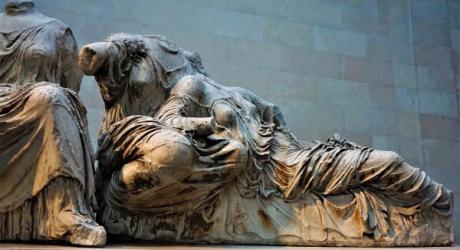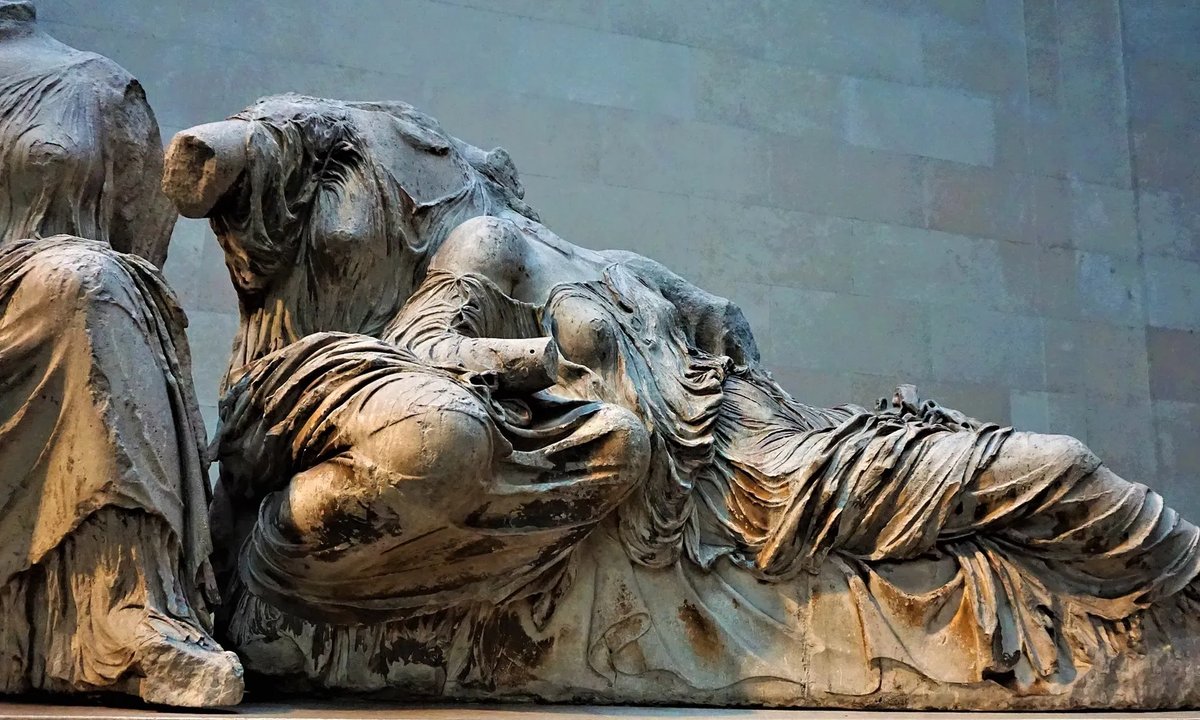
The British Museum’s hopes of securing a “long-term partnership” with the Greek government over the return of the Parthenon Marbles appear imperilled as the Greek prime minister publicly hardened his stance ahead of general elections in the country this summer.
On 11 January, the Greek Prime Minister Kyriakos Mitsotakis also dismissed recent news reports that the ancient sculptures would soon return to Greece as the result of a deal with the British Museum.
Instead, Mitsotakis pledged to repatriate the marbles during a second term in office. Mitsotakis’s first term ends in July, and he will face a general election this summer to achieve another term in office. “If the Greek people trust us again, I believe we could achieve this target after the elections,” he said during a televised press conference with Greek President Katerina Sakellaropoulou.
Mitsotakis’s comments come just a few days after a spokesperson for the British Museum confirmed to The Art Newspaper for the first time that it was in “constructive discussions” with the Greek government about a possible “Parthenon partnership.”
A partnership of this type would mean the marbles would only be held in Athens for a finite period of time, before returning to the museum in London. In December, the Greek daily newspaper Ta Nea reported that such a deal was “at an advanced stage”.
But Mitsotakis’s comments have been backed up by other ministers in the Greek government. According to a report in the Greek newspaper Kathimerini published on 5 January, a spokesperson for the Greek ministry of culture, which is headed by Lina Mendoni, said: “We repeat, once again, our country’s firm position that it does not recognise the British Museum’s jurisdiction, possession, and ownership of the sculptures, as they are the product of theft.”
The British Museum declined to offer a response to the Kathimerini report.
In an interview with The Art Newspaper, Sophia Hiniadou Cambanis, a leading Greek lawyer who advises Greece’s Hellenic government on cultural policy, described the museum’s ownership of the Parthenon Marbles as “vandalistic” and “the archetypal case of looted artworks”.
Asked if the Greek people would ever accept a loan-type arrangement, she said: “It is self-evident that Greece does not recognise the British Museum’s ownership and possession of the sculptures.”
“It’s pretty obvious that no one in Greece thinks a deal for the return of the marbles is imminent,” said Yannis Andritsopoulos, the London Correspondent for Ta Nea, in an interview. “Prime Minister Mitsotakis has promised to achieve this if the Greek people re-elect him in the forthcoming general election. But Syriza, the main opposition party, has accused the government of trying to exploit the dispute for political gains.”
Osborne is also facing obstructions from his own side. On 11 January, Michelle Donelan, the UK’s Culture Secretary, stated she thinks the Parthenon Marbles “belong here in the UK”. In a range of interviews including BBC Radio 4’s The Media Show and The News Agents podcast, Donelan said that the permanent return of the marbles to Greece would “open the gateway to the question of the entire contents of our museums”. She added “It’s important we stand up and protect our culture,” stating that returning the marbles would be a “dangerous” path.
In response to Donelan’s comments, a British Museum spokesperson told The Art Newspaper: “As the Chair of Trustees said recently, we operate within the law and we’re not going to dismantle the museum’s collection as it tells the story of our common humanity. We are however looking at long term partnerships, which would enable some of our greatest objects to be shared with audiences around the world. Discussions with Greece about a Parthenon Partnership are ongoing and constructive.”







